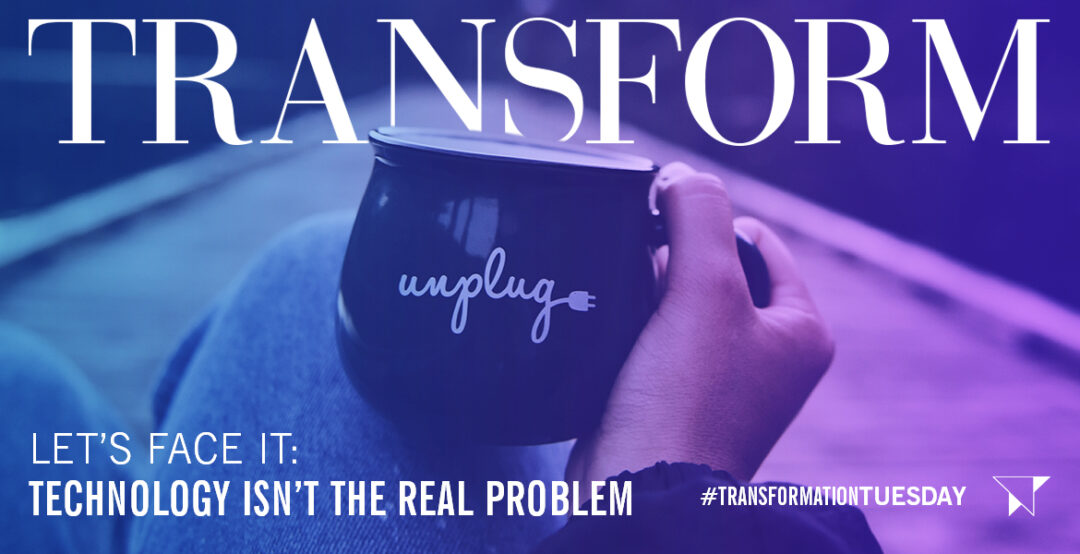We are curious … Did you take us up on our digital detox challenge? Did you unplug and step away from engaging in a 24/7 digital lifestyle for at least one day, last week? Or did you make it a tech free weekend challenge and extend the challenge to your family and friends? If so, check in. We want to hear about your device-free experiences. What happened when you shifted your attention to face-to-face interactions in lieu of FaceTime or some other form of digital communication? Send us a quick email or post a comment on Transform’s Facebook page.
Are screens really the problem or a symptom? Opting in (or out!), unplugging and cultivating more device-free, face-to-face, moments seems to be a growing movement. Let’s face it: technology isn’t the real problem. Sure, we live in a tech-saturated world. However, digital devices and technology just provide more channels – more pathways – that act to introduce more distraction and complexity. So, when it comes to “unplugging” let’s address the elephant in the room: It’s about behavior change. For behaviors to change we each need to find ways that work for us as individuals. The same applies to digital detox—everyone needs to do it differently.
Now, let’s turn our focus. How (and when) you choose to unplug you create more time and space to connect with others and yourself. These moments are powerful. Use them to reimagine and reinvent. As you gain more awareness, and become literally less distracted, you notice a shift happens. You choose to break free versus feed your digital habits. Why? Ultimately technology is just another tool. The game-changer is in recognizing this truth and changing our behaviors.
When we make the choice to set boundaries and change a habit – to not engage in too much tech – we find ourselves participating in activities that don’t involve screens at all and doing things that build relationships and perspectives. Deeper conversations emerge and fuel stronger relationships. Leaders know you cannot function when you are exhausted and empty. You have to make replenishing your body, mind and soul a priority.
Ultimately what you do with your time shift is entirely up to you. Use the investment in creating more space to help influence changing approaches, attitudes and behaviors to realize the real value. And as for the ROI we think you’ll find it is the experiences, moments and, of course, irreplaceable memories that define us. Because, after all, you own your shift.




